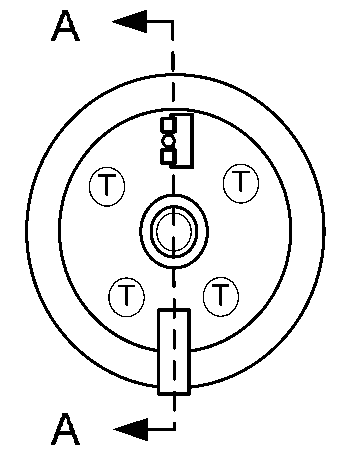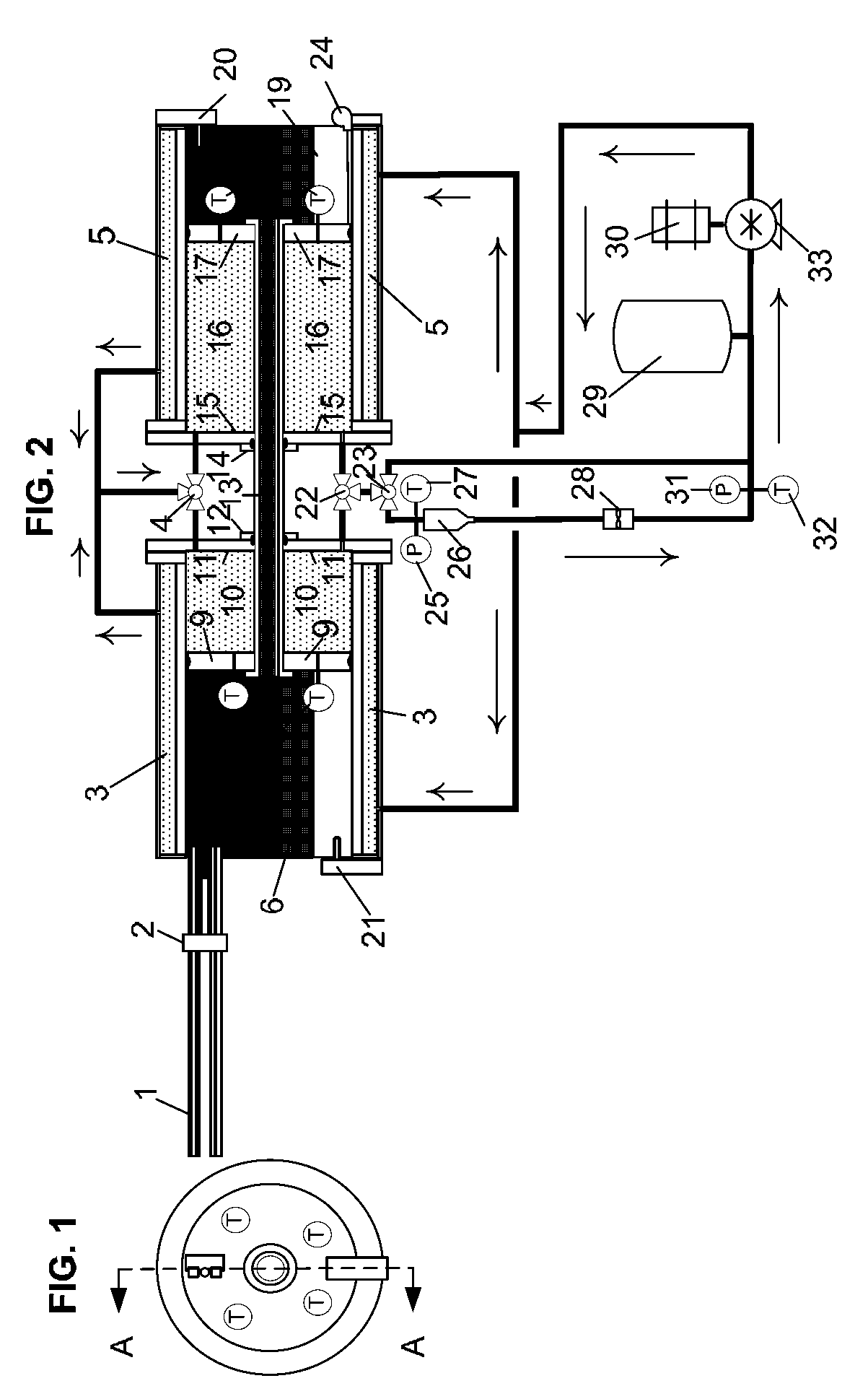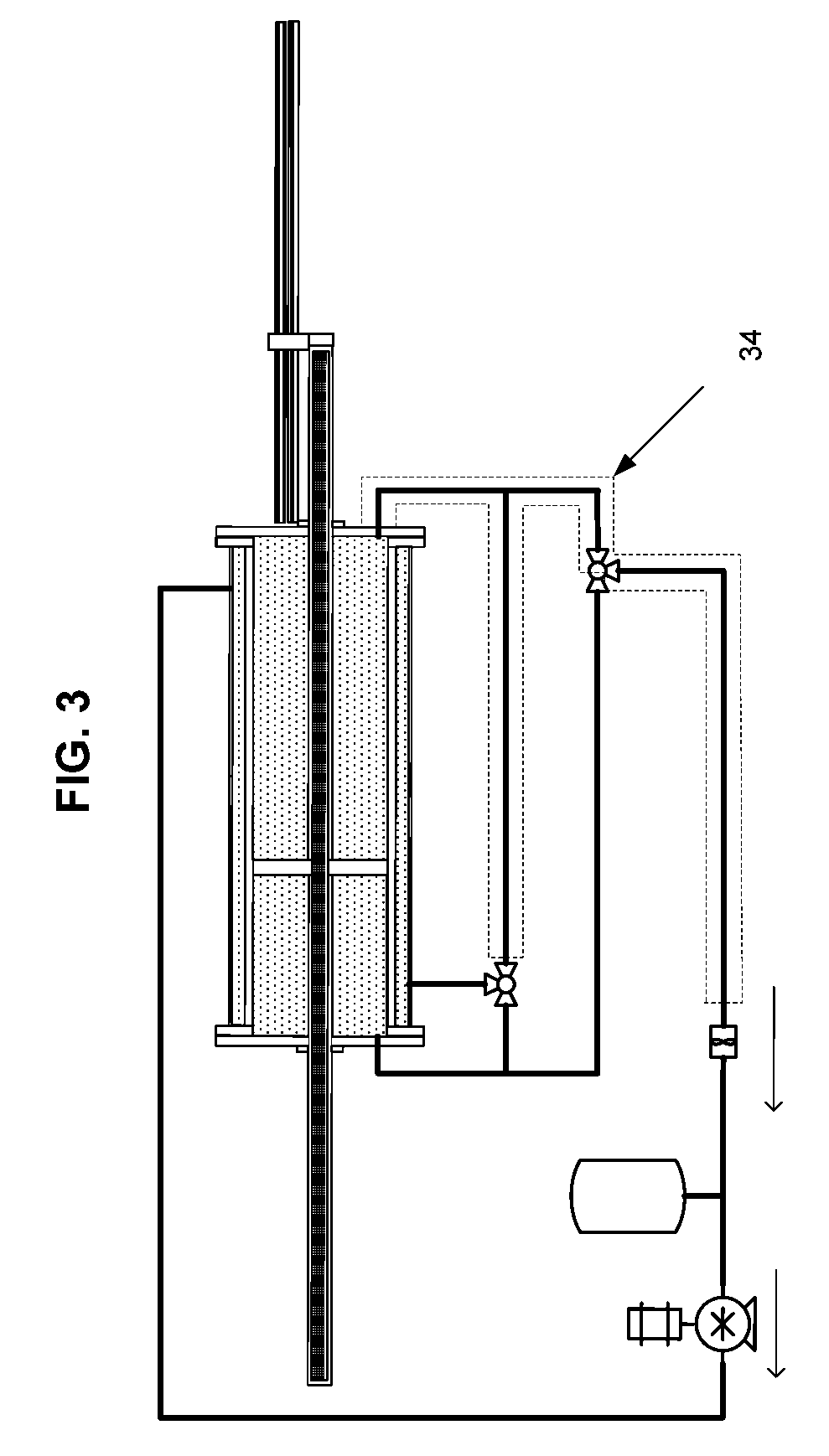Flowmeter Calibration System and Operational Method
a fluid flowmeter and calibration system technology, applied in the calibration of speed/acceleration/shock measurement devices, measurement devices, instruments, etc., can solve the problems of not providing optimization of calibration methods to minimize, and the volumetric fluid flow rate standards for calibration of fluid flowmeters can not be considered to be better, so as to reduce the uncertainty of flowmeters, reduce the ratio of connecting volume, and reduce the effect of uncertainty
- Summary
- Abstract
- Description
- Claims
- Application Information
AI Technical Summary
Benefits of technology
Problems solved by technology
Method used
Image
Examples
Embodiment Construction
[0035]In the preferred embodiment of the present invention for liquid service, two cylinders 6 and 19, each containing a fluid barrier piston 9 and 17, are axially aligned. The two pistons 9 and 17 are mechanically coupled via an interconnecting shaft 13 and move in unison as directed by the force of fluid being pumped into the cylinder chamber 10 or 16 receiving said fluid via three-way valve 4 after said fluid has passed under pressure through the jacketed volumes 3 and 5 surrounding the exteriors of both cylinders 6 and 19. The interconnecting shaft 13 passes through end plates 11 and 15 on the fluid chamber 10 or 16 end of the cylinders 6 or 19 via fluid barrier sealing mechanisms 12 and 14 around the outer surface of the shaft 13. The pressure of the fluid acting on the piston 9 or 17 in the cylinder fluid chamber 10 or 16 receiving the pumped fluid creates a motive force on the piston 9 or 17 in the second cylinder 6 or 19 via the mechanical coupling of the interconnecting sha...
PUM
 Login to View More
Login to View More Abstract
Description
Claims
Application Information
 Login to View More
Login to View More - R&D
- Intellectual Property
- Life Sciences
- Materials
- Tech Scout
- Unparalleled Data Quality
- Higher Quality Content
- 60% Fewer Hallucinations
Browse by: Latest US Patents, China's latest patents, Technical Efficacy Thesaurus, Application Domain, Technology Topic, Popular Technical Reports.
© 2025 PatSnap. All rights reserved.Legal|Privacy policy|Modern Slavery Act Transparency Statement|Sitemap|About US| Contact US: help@patsnap.com



